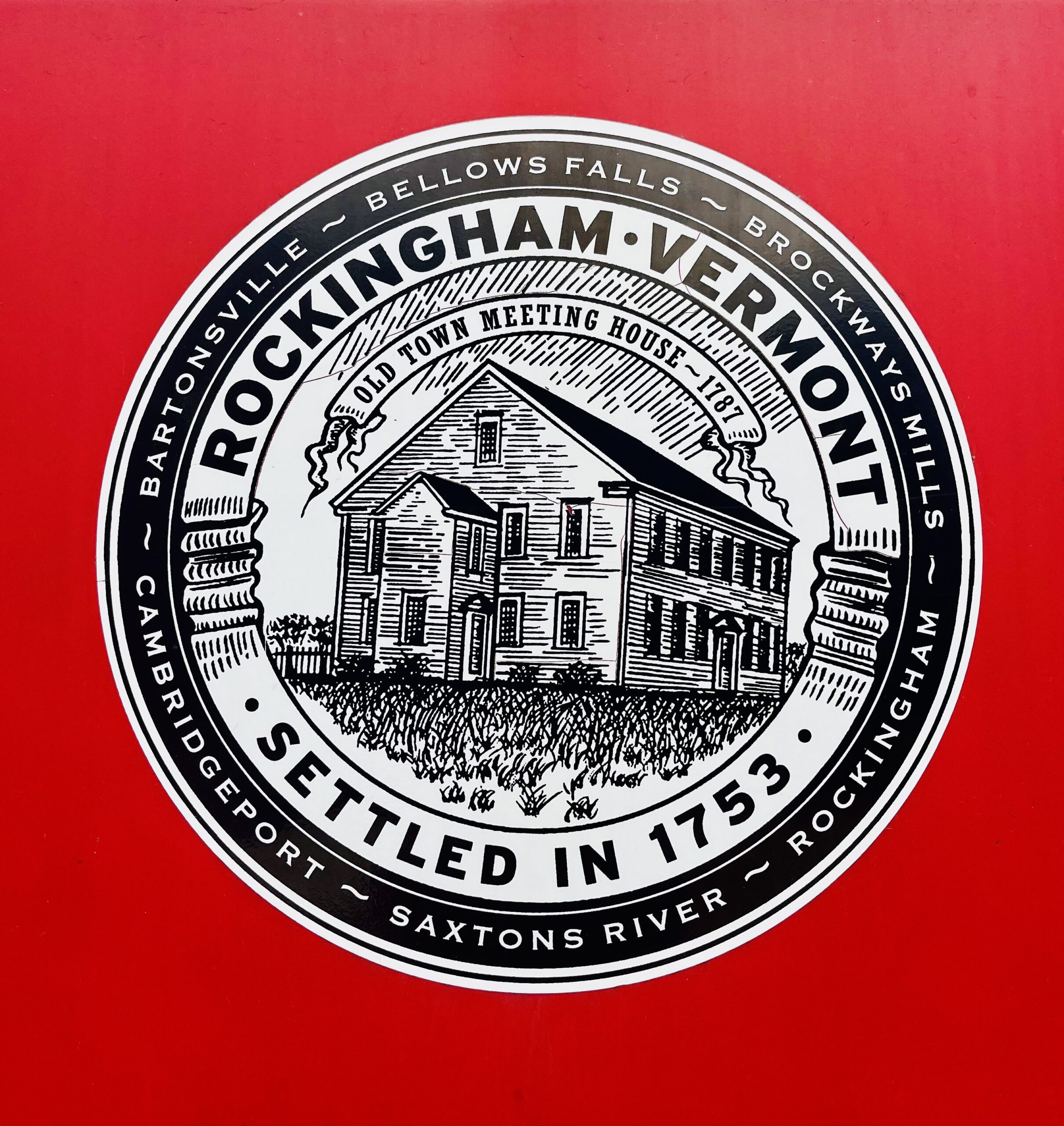
BELLOWS FALLS, Vt. – The Rockingham Selectboard held a public hearing at the town hall in Bellows Falls on Tuesday, July 23, at 6 p.m., to discuss the Town Plan with Rockingham residents.
Board Chair Rick Cowan called the hearing “a key opportunity for community members to share their input and perspectives on the future development of our town.”
Cowan asked Planning Commission Chair Deborah Wright to help respond to residents’ questions and comments. Wright reported that all members of the commission were in attendance either in person or via Zoom, and any one of them could help clarify the details of the plan, having carefully dissected the 129-page document section by section.
There was some discussion of land use regulations and zoning bylaws, and board member Elijah Zimmer remarked that he would like to see no further commercial development along Atkinson Street, prompting board member John Dunbar to reply, “The Town Plan is suggesting that we should think about ways in the future to address the needs of our town. The zoning bylaws are the rules and regulations that are in place to keep certain things out that we don’t want, like a big box store. The town has existed with some commercial and residential on that street for hundreds of years, so to say no more commercial on that street, I don’t think addresses what our Town Plan is trying to achieve.”
Planning commission member Dalila Hall explained, “The important thing to remember with the Town Plan is, it is [an aspirational document] that is revisited every eight years.”
The issue regarding timely posting of town meeting minutes was raised, and town manager Scott Pickup expressed the challenge the town faces, not having a dedicated person responsible for that duty. Pickup acknowledged the problem – that by neglecting to post minutes within five days of a meeting, the town was not compliant with state statute – but discussion around a possible solution was inconclusive. Pickup said he would “work on it” and report back to the board.
The board approved several appointments, including adopting the letter of interest from the tree committee, consisting of six volunteer members, the appointments of Remy Walker as alternate to the development review board, and Mike Stack to the Rockingham Energy Committee (REC).
Bellows Falls’ new animal control officer, Diana Jones, was at the meeting, and told the board that the tier one training she had researched would cost $500. Additionally, the board discussed an increase in compensation for the position, citing Jones’ report that she had handled more than 50 calls relating to animal control received since May.
Cowan mentioned that the other option for response would be the sheriff, which would cost more.
Jones stated that her current compensation of $200 per month was “not enough. I’m not just doing the job itself,” Jones explained, “I am also trying to put together our processes and procedures, [and] updating our ordinances, which haven’t been updated for a long time.”
Ultimately, it was agreed that Jones would provide the board with more data at the Sept. 3 selectboard meeting.
Pickup updated the board on some of the 22 active brownfields sites throughout Bellows Falls and Rockingham, currently in various stages of assessment through funding offered by the Vermont Department of Environmental Conservation (DEC) program. Those properties included 66 Atkinson Street in Bellows Falls, and the current home of the Bellows Falls Bike Project at the corner of Henry and Atkinson streets.
Also mentioned by Pickup were the Adams Grist Mill Museum, owned by Bellows Falls Historical Society, which is currently in Phase II of its site assessment, and the Bridge Street parking lot prospective development.
Regarding the parking lot redevelopment, Fox told the meeting, “News should be released shortly.”
Pickup called the project “long-term,” commenting that it is still likely a couple of years off. The town will need to hire a qualified environmental consultant to handle the management and proper containment of contaminated soil during construction.
Regarding the train station project, Pickup said that since the last selectboard meeting in June, a letter was sent from the DEC to VTrans, the current owner of the property. Based on recent environmental testing, DEC outlined a series of steps that would need to be followed in any cleanup effort of the location, to adopt a Corrective Action Plan (CAP). The issue is hazardous vapors coming up from the basement.
Pickup detailed the funding sources involved and expressed how complex the coordination of so many different partners has been and will continue to be, as the project moves through phases, and the town considers purchasing the building.
Board member Bonnie North remarked, “The town will only go as far as we have money to spend on this project, but we will lose funding that we have secured if we do not move forward.”
Pickup told the board that, if the town does not purchase the train station, “I don’t get the sense that Vermont Rail [will put] the money and energy into this building that we are looking at investing. Then, I don’t know what the future of that building would be.” He added that the train station is on the national registry and has a significant history within the community.
Zimmer commented, “I think we’ve all got our eyes wide open, and we understand the implications.”
The next selectboard meeting will take place on Tuesday, Aug. 13, at 6 p.m.